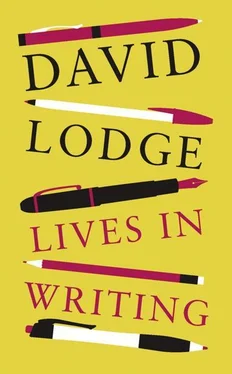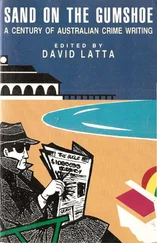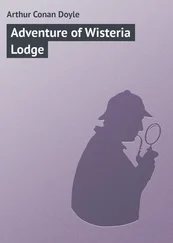By this time Amis was in poor health, and drinking heavily, as he had been for years. In the autumn of 1995 he had a serious fall and after a few weeks of illness and dementia, very distressing to his family, he died peacefully in his sleep on 22 October. With extraordinary tactlessness, Jacobs attempted to rush into print with his observations of Amis’s last weeks of life, and approached some newspapers with the material. When Martin Amis protested, Jacobs immediately backed down, but he was not invited to the funeral, and the editorship of the letters was given to Zachary Leader, a friend of Martin’s. This was perhaps hard luck for Jacobs (who died in 2003), but fortunate for readers of Kingsley Amis. Leader is an academic critic with a special interest in modern British writing. American by birth, he has lived the larger part of his adult life in England, long enough to respond to the nuances of Amis’s prose. His monumental, meticulously annotated edition of Amis’s Letters , published in 2000, did full justice to the richness of the material, for Amis was one of the great letter-writers of the twentieth century, and certainly one of the funniest. His early correspondence with Philip Larkin, whose Selected Letters edited by Anthony Thwaite (1992) displayed an equally expressive epistolary style, is a fascinating record of the formation of the literary ideas and practices that eventually flowered in the Movement. Simultaneously with the Amis Letters , Martin Amis published Experience , a complex memoir of an extraordinary concatenation of events in his life in 1995, including his father’s last illness and death, and containing many vivid anecdotes of their relationship from childhood onwards. Leader draws on these sources, but also provides a great deal of information that is new, recovered from unpublished manuscript material and from wide-ranging interviews with people who knew Amis. Many of the latter were hurt by him, in print or in life. There was an aggressive streak in his character, and he derived a devilish glee from flaunting rudeness and prejudice which tested his friends’ and family’s tolerance to the limit. ‘Few writers have written as perceptively about bad behaviour as Amis or been as consistently accused of it,’ Leader observes. He achieves the feat — especially difficult for any ‘authorised’ biographer — of being both empathetic with and critical of his subject. Reading this book one is at various points surprised, amused, fascinated and shocked, but one closes it at the end impressed by the ruthless honesty with which Kingsley Amis explored and confronted the less amiable aspects of his own character in his imaginative writing.
As a narrative, it has a wave-like structure, and might have been called The Rise and Fall and Rise and Fall of Kingsley Amis , the two crests of his literary career being the successes of Lucky Jim and The Old Devils (with which he won the Booker Prize in 1986). In the trough between these two books there was much personal unhappiness, angst, accidie, and ill-health, from which he seemed to recover for a period before a final descent into dissolution and death, the fear of which had always haunted him, as it did Philip Larkin.
‘Kingsley Amis’ is a good name for a writer — both parts of it being unusual and instantly memorable. His given name probably derives from the popular Victorian novelist Charles Kingsley, but it is not likely that Amis’s parents had such a vocation in mind for their son when they named him after a cousin of his mother’s. Born in 1922, he was their only child — according to family rumour the birth was so traumatic that conjugal relations subsequently ceased. Mrs Amis was certainly panicked by any allusion to sex in the home — Amis recalled a ‘fierce (and absurdly visible) shake of the head’ at the mention in his presence when he was about fourteen of ‘somebody’s honeymoon or some such depravity’. The family was lower-middle-class, its ethos a genteel secularised Protestantism. Mr Amis was employed as a clerk with a firm in the City of London, and Mrs Amis was a housewife. They occupied a series of modest houses in a nondescript suburb called Norbury on the southern rim of Greater London. What saved Amis from a childhood of crippling dullness was the City of London School where his father enrolled him at the age of twelve and where he was supported after one year by a scholarship. This was by all accounts, including Amis’s, an admirable institution which modelled itself on public schools but took its pupils from a wider social range and, being a day school, did not cut them off from normal life during term. In 1939, however, when the outbreak of war seemed inevitable, the school was evacuated to share the teaching facilities of Marlborough, a traditional boarding school, and so Amis came to experience the kind of educational ambience that he had previously known only vicariously from juvenile reading.
It was virtually an all-male environment, as were St John’s College, Oxford, where he went in 1941 to begin reading English, and the army into which he was called up in 1942, interrupting his studies for the duration of the war. So from his late adolescence into early adulthood girls were scarce and seldom sexually available, and his closest personal relationships were with other young men, notably with Philip Larkin, who was already at St John’s, and also reading English, when Amis went up to Oxford. Larkin had a similar social background to Amis’s, and they had the same tastes in literature, jazz, and humour. They immediately became fast friends. ‘It was love, unquestionably love on my father’s part,’ Martin commented in Experience , after reading Amis’s early letters to Larkin, an intense feeling of affinity which the former both acknowledged and defused by referring to the latter occasionally as ‘dalling’. From an unpublished and uncompleted novel called ‘Who Else Is Rank?’ which Amis wrote in collaboration with a fellow officer during his military service, and a short story by Philip Larkin called ‘Seven’, it is clear that there was a homosexual element in the group to which they belonged at Oxford, and a camp style was adopted by some of its heterosexual members. This may partly explain Amis’s determination later to seize every possible opportunity for fornication, as if he needed to reassure himself about his own sexual identity. (In one of his letters to Elizabeth Jane Howard, with whom he fell in love in 1962, he says: ‘thanks to you I have dismissed for ever any lingering doubts about my masculinity and all that.’)
Amis joined the Royal Signals in 1942, correctly calculating that this would be one of the safest branches of the military in a war because its activities are usually well to the rear of any fighting. Nevertheless his unit was posted to France only three weeks after D-Day, and followed the British forces across Europe until the end of the war, so he cannot have been entirely out of danger. When I reviewed the Letters in the Times Literary Supplement I speculated that perhaps Amis’s chronic anxiety and panic attacks had their origin in some concealed wartime trauma, but there is no evidence for this in Leader’s detailed account of his military service. Nor, either in his letters or published comments, does Amis seem to have had any sense of taking part in the climactic chapter of an historical epic. The short stories he wrote about the army and the relevant chapters of ‘Who Else Is Rank’ focus on regimental life as a microcosm of British civil society, and the prospects of change in this realm in the future. In his first years as an undergraduate at Oxford Amis, like many of his contemporaries, including Iris Murdoch, joined the communist-dominated Labour Club and later the Communist Party itself. He described this later in life as a form of rebellion against his father, though it was also a way of meeting liberated girls, one of whom relieved him of his virginity. He certainly soon tired of earnest discussions of dialectical materialism, and the effect of his military experience was to turn him away from dogmatic Marxism to a democratic socialism which would allow plenty of individual freedom. The young soldier corresponding to Amis in ‘Who Else Is Rank?’ dreams of a post-war England ‘full of girls and drink and jazz and books and decent houses and decent jobs and being your own boss’.
Читать дальше












